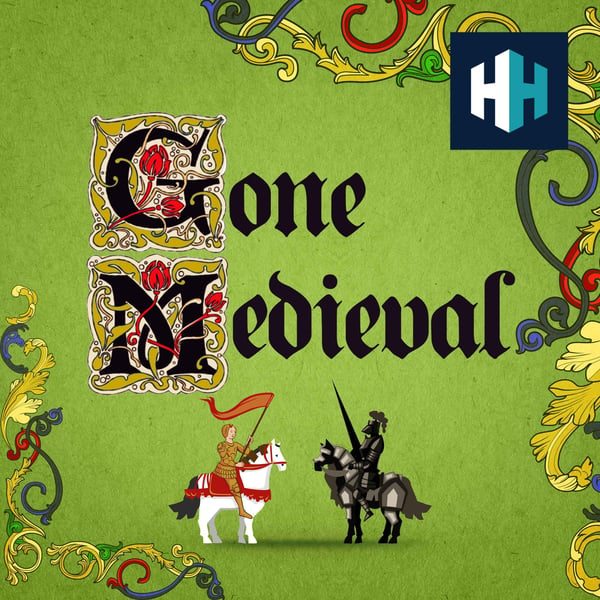The Norse Walrus Ivory Trade Crash
Gone Medieval
History Hit
4.6 • 2.2K Ratings
🗓️ 26 July 2022
⏱️ 34 minutes
🧾️ Download transcript
Summary
The first of Greenland’s Viking settlements were established in the tenth century. But by the fifteenth century, they had all but vanished, their fate confounding generations of archaeologists. But new research has revealed that it was the trade in walrus ivory that was behind both their prosperity and decline.
In this edition of Gone Medieval, Dr. Cat Jarman talks to Professor James Barrett, to discuss an enterprise that traversed East and West, but ultimately crashed as stocks ran out and elephant ivory became more accessible.
The Senior Producer on this episode was Elena Guthrie. It was edited by Thomas Ntinas and produced by Rob Weinberg.
For more Gone Medieval content, subscribe to our Medieval Mondays newsletter here.
If you'd like to learn even more, we have hundreds of history documentaries, ad free podcasts and audiobooks at History Hit - subscribe today! To download, go to Android or Apple store.
Hosted on Acast. See acast.com/privacy for more information.
Transcript
Click on a timestamp to play from that location
| 0:00.0 | If you're a fan of the podcast, I've got some exciting news for you. We're publishing a book. |
| 0:04.7 | If you've ever wondered, who was the third man on the moon? Why was a pigeon a hero in the |
| 0:09.6 | American army? And wasn't Napoleon really all that small? Then the history hit |
| 0:14.0 | Missellony will have the answer. It's available for pre-order now and will be published on |
| 0:18.5 | the 28th of September. Pre-order from your favourite bookshop or visit historyhit.com forward slash book. |
| 0:25.7 | This episode is sponsored by the London Review of Books, Europe's leading magazine of books |
| 0:32.8 | and ideas. There are plenty of reasons to read the London Review of Books, the finest book |
| 0:37.6 | reviews is only one of them. There are articles by writers including James Meek, Alan Bennett, |
| 0:43.1 | Amir Shrinivasan and Patricia Lockwood. Add to this quality of writing the removal of a |
| 0:48.3 | restrictive word count and you have incredibly knowledgeable people with the space to explore their |
| 0:53.4 | ideas to the fullest. There's a vast range of topics and a huge back catalogue to explore. |
| 0:58.8 | Right now, there's a very special offer said that you can give it a try. It's so good, |
| 1:02.6 | it seems rude not to and you can cancel it at any time anyway too. |
| 1:06.5 | Go to lrb.me forward slash hit to try three issues of the London Review of Books for just one |
| 1:14.6 | pound and get six weeks of online access to their archive of more than 18,000 pieces. |
| 1:20.5 | That's a saving of 94% off the cover price. Go to lrb.me forward slash hit now. |
| 1:32.8 | Hello and welcome to Gone Medieval. I'm Doctor Cat Jamon. One thing we know about the Medieval |
| 1:39.4 | period is that it was a time when trade across not just Europe but also the wider world |
| 1:45.6 | began to reach something we could call globalisation. How far did these trading connections go and |
| 1:52.2 | what did they mean for the people and societies behind them? This week we're talking about this |
| 1:57.7 | and a very specific commodity that was highly prized at Medieval society which brand new research |
| 2:03.8 | now shows travelled vast distances connecting east and west and a commodity that may have had an |
... |
Please login to see the full transcript.
Disclaimer: The podcast and artwork embedded on this page are from History Hit, and are the property of its owner and not affiliated with or endorsed by Tapesearch.
Generated transcripts are the property of History Hit and are distributed freely under the Fair Use doctrine. Transcripts generated by Tapesearch are not guaranteed to be accurate.
Copyright © Tapesearch 2025.

